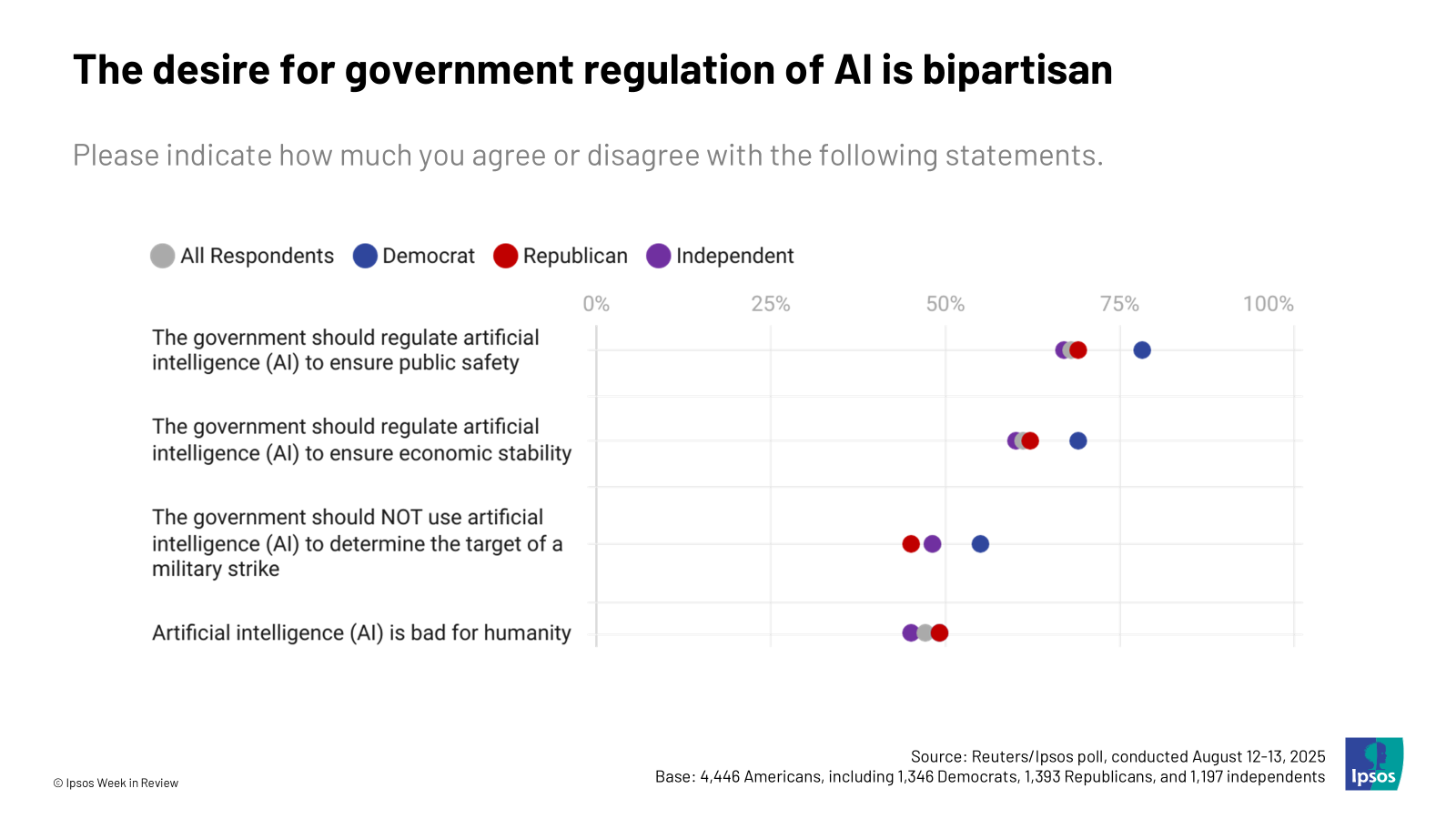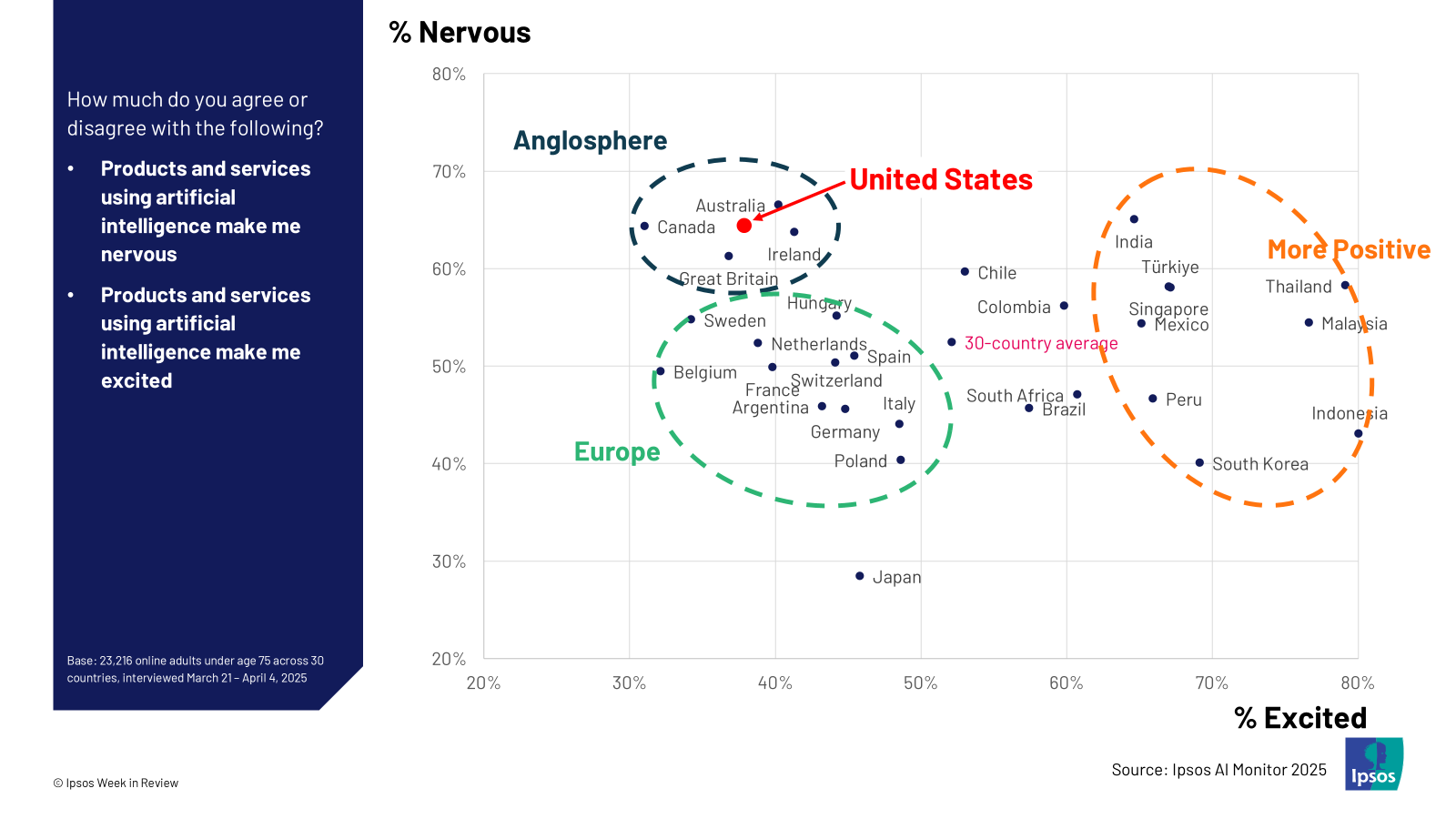America's AI Angst
Insights into the New America brought to you by Clifford Young and Bernard Mendez.
There once was a time when AI was invisible. It may have subtly influenced the movies you watched, the songs you heard, the products you bought, and the news you read, but the average person could go without hearing the words “Artificial Intelligence” for most of their daily lives.
That time has long since passed.
AI is now pervasive. However, the data shows that Americans aren’t particularly keen on AI.
Below are five charts on how Americans feel about AI.
- Widespread concern over jobs (and more). There’s a reason investors are pouring billions and billions into the AI space, and it’s not because they view AI as tool to help white collar workers rewrite emails. It’s worth remembering that while AI permanently displacing millions jobs is a possibility, it’s far from a certainty. But Americans are on alert. An advancement in AI that displaces a large swath of workers would almost immediately make AI a dominant concern among Americans.

- The desire for action is bipartisan. Right now, it’s the wild west for the AI industry. At the same time, given the high level of concern Americans have over AI, there is a significant number of political points up for grabs for politicians that speak to Americans’ fears around AI.

- Low trust. Americans are uniquely distrustful of that their government will regulate AI responsibly compared to the rest of the world. This lines up with Americans’ deep-rooted distrust of the “system” and belief that the U.S. economy is rigged to advantage the rich and powerful. This anxiousness also bleeds into their perceptions of products and services using AI.

- Few prefer AI content. All else equal, Americans largely prefer human-generated content to AI-generated content. Of course, if nobody can tell the difference, the equation might change. But right now, humans prefer to consume things made by humans.

- More nervous than excited. It’s the long-term fear that’s driving the current negative perceptions of AI. This affects the way Americans view products and services using AI: Americans are among the most nervous and least excited about such products.

The bottom line: In the short term, know that long-term fear is currently driving nervousness over AI.
Most Americans already feel shortchanged by an economy they feel is rigged to advantage the rich and powerful. A new technology that is fundamentally labor-replacing and has the potential to be existential only heightens this anxiety. As a result, products, services, and content using this technology cause more anxiety than excitement among Americans. Companies hoping to boost their AI chops may be better served looking inward than outward.
Ultimately, nobody, not even the people trying to make it happen, knows when the AI “singularity” will happen, if it happens at all. Maybe AI has hit the proverbial “wall.” Or maybe AI progress has just begun.
But one thing is clear: There’s a mostly untapped gold mine of political points to be won for the political movement that speaks to Americans’ fears around AI. If Artificial General Intelligence is just around the corner, so too are the AI populists.
![[WEBINAR] The Value of Higher Education in the New America](/sites/default/files/styles/related_more_insights/public/ct/event/2025-08/8.jpg?itok=vzOMLG_V)

